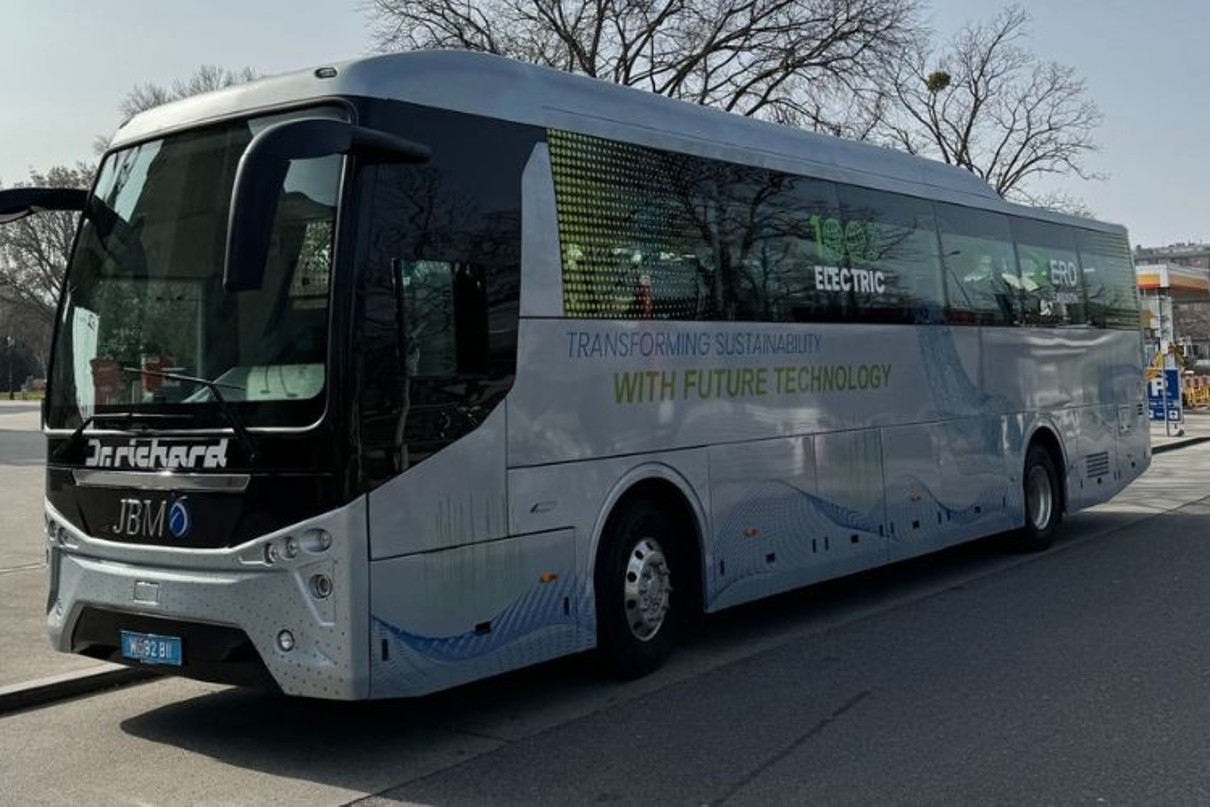Page content
An innovation from India
Great strides are being made in the development and introduction of electric buses in India, more than in most other regions. One of the leading companies manufacturing vehicles, batteries and charging infrastructure is JBM. During the last five years electric JBM buses have covered over 100 million kilometres carrying more than one billion passengers. Those numbers are set to increase in the years to come. Over the next three to four years the company is targeting over one billion kilometres and more than ten billion passengers with electric vehicles.
Some of that distance will be covered in Europe, since JBM is presenting its Galaxy electric coach at BUS2BUS. In hub27, on Stand 411 visitors to the show can get an impression of this concept bus. In its current development form its capacity for long distances is limited. ”The coach can travel 400 kilometres on a single battery charge“, says Daniel Fräde, sales director, Marketing & After Sales Europe at JBM. ”It could conceivably transport skiers during the week and travel from Salzburg to Vienna on the weekend for example.“ In Austria the Galaxy is currently being tested by the Dr. Richard Group.

The Galaxy electric coach can travel 400 kilometres on a single battery charge.
Electric buses by JBM have a wide range of safety features. They are equipped with the company’s own advanced driver assistance system (ADAS) which alerts the driver to obstacles and detects driver errors in order to ensure a safe journey. Among the many other safety features are an automated emergency braking system (AEBS), a forward vehicle collision warning system (FVCWS), and a moving off information system (MOIS) for keeping to lanes and avoiding collisions with pedestrians and cyclists. The vehicle is also protected against cyberattacks and features an intelligent speed monitoring assistant.
According to Daniel Fräde, JBM aims to develop the bus so it can travel 800 kilometres on a single battery charge. This could be achieved with especially efficient proprietary battery packages. Whenever a bus had less to transport it could take more batteries on board, he said. At the same time, to ensure Germany-wide services the number of fast-charging points on autobahns would have to increase. That is where Daniel Fräde sees a big requirement having to be met before the changeover to long-distance electric transport.


